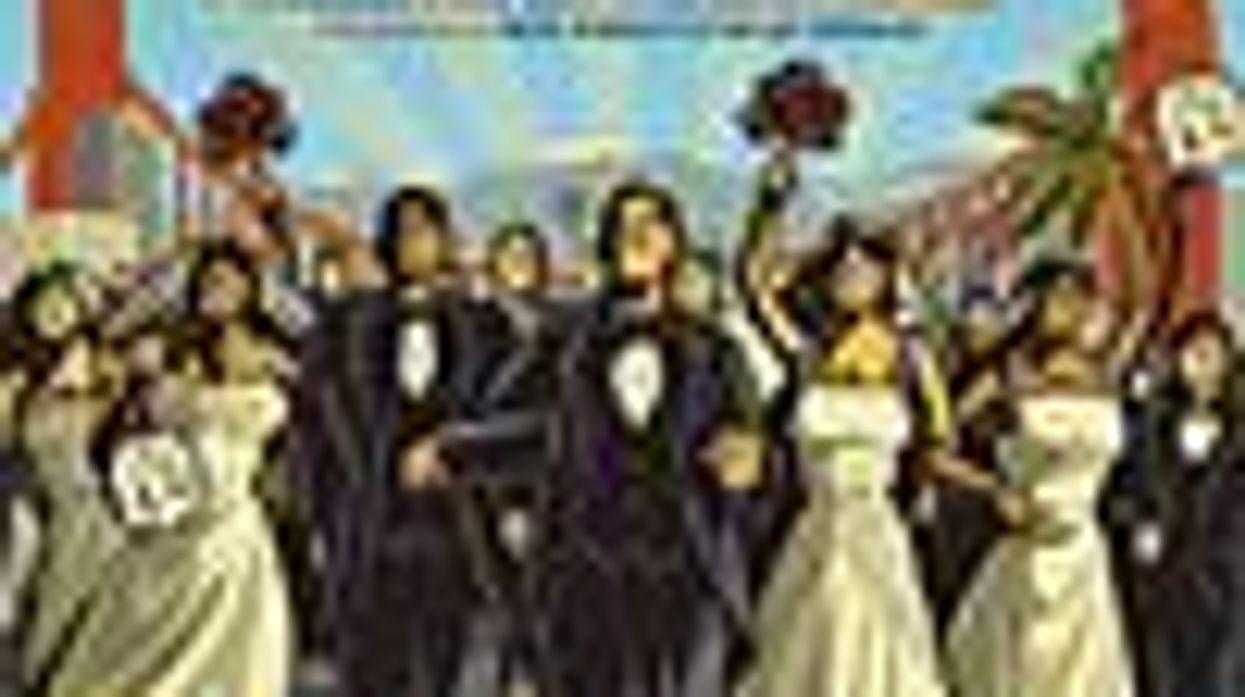
June 04 2008 12:00 AM EST
By continuing to use our site, you agree to our Privacy Policy and Terms of Use.

May 31, 1989 The San Francisco board of supervisors passes an ordinance to start a domestic-partnership registry.
May 27, 1999 The California state legislature passes a series of domestic-partnership rights, including a statewide registry, though before signing the legislation in July, Gov. Gray Davis weakens benefits for same-sex couples.
March 7, 2000 Proposition 22 passes in a referendum election, with 61% of voters in favor of defining marriage as an institution reserved for heterosexual couples.
January 20, 2004 In his State of the Union address, President George W. Bush expresses support for an amendment to the U.S. Constitution banning same-sex marriage, inspiring audience member Gavin Newsom, who had been sworn in as mayor of San Francisco less than two weeks earlier, to begin authorizing same-sex marriages in his city.
February 12, 2004 San Francisco becomes the first municipality in the United States to marry same-sex couples when Mayor Newsom directs the San Francisco city-county clerk to issue marriage licenses regardless of the applicants' sex.
February 13, 2004Proposition 22 Legal Defense and Education Fund v. City and County of San Francisco is filed in the San Francisco County superior court, seeking to prevent further marriage licenses from being granted to same-sex couples and to invalidate licenses already granted.
February 17, 2004 Judge James Warren allows San Francisco to continue granting marriage licenses to same-sex couples.
March 11, 2004 The California supreme court issues a temporary order calling for San Francisco to stop issuing marriage licenses to same-sex couples.
March 12, 2004 The National Center for Lesbian Rights files Woo v. State of California on behalf of 12 couples, Equality California, and Our Family Coalition, seeking marriage equality for same-sex couples. Cocounsel on the case are Heller Ehrman LLP, Lambda Legal, the American Civil Liberties Union, and the law firm of David C. Codell.
March 2004 City Attorney Dennis Herrera and Deputy City Attorney Therese M. Stewart file City and County of San Francisco v. State of California, challenging discriminatory provisions in state marriage statutes.
2004 Tyler v. State of California is filed by private attorneys on behalf of two same-sex couples in Los Angeles.
2004Clinton v. State of California is filed by private attorneys on behalf of six same-sex couples in San Francisco.
2004 Campaign for California Families v. Newsom is filed to challenge Mayor Newsom's right to marry gay couples.
June 2004 The California judicial council orders all six cases consolidated to become In re Marriage Cases.
August 12, 2004 In Lockyer v. City and County of San Francisco, the California supreme court invalidates the approximately 4,000 marriage licenses issued to same-sex couples at San Francisco City Hall, ruling that the municipality acted beyond its authority.
January 1, 2005 Domestic-partnership laws are expanded to include more privileges and responsibilities such as inheritance rights, joint responsibility for debts, and the ability to request child support following dissolution of a relationship.
March 14, 2005 San Francisco County superior court judge Richard Kramer issues a tentative decision that California's ban on same-sex marriage is "impermissibly arbitrary." He also finds that Proposition 22, which barred same-sex couples from obtaining marriage licenses, is unconstitutional.
September 6, 2005 The California legislature becomes the first in the nation to pass a marriage equality bill, a measure proposed by Assemblyman Mark Leno. Gov. Arnold Schwarzenegger announces the following day that he will veto the bill; he does so on September 29.
July 10, 2006 In re Marriage Cases attorneys state their arguments before California's first district court of appeal.
October 5, 2006 The first appellate court rules 2-1 that the state may continue to bar same-sex couples from marriage.
November 14, 2006 Plaintiffs appeal to the state supreme court, which on December 20 announces a unanimous decision to hear In re Marriage Cases.
September 7, 2007 The California legislature passes the Religious Freedom and Civil Marriage Protection Act. On October 12, Governor Schwarzenegger again vetoes the bill, noting that he prefers to let the court decide the issue and that he will support whatever decision it reaches.
September 26, 2007 By the court's deadline for groups and individuals to submit friend-of-the-court briefs for In re Marriage Cases, 30 briefs are filed in support of the plaintiffs, representing hundreds of LGBT activist groups, religious bodies, legal organizations, and family and child advocacy groups.
March 4, 2008 The California supreme court hears arguments for In re Marriage Cases.
April 24, 2008 Representatives from the antigay organization Protect Marriage deliver 1.1 million petition signatures to county officials, hoping to qualify its proposed constitutional ban on same-sex marriage for the November ballot.
May 2, 2008 A competing constitutional amendment seeking to rescind domestic-partnership rights as well as ban same-sex marriage fails to get enough signatures to qualify for the ballot.
May 15, 2008 The California supreme court rules 4-3 that denying same-sex couples the right to marry is unconstitutional.
Charlie Kirk DID say stoning gay people was the 'perfect law' — and these other heinous quotes